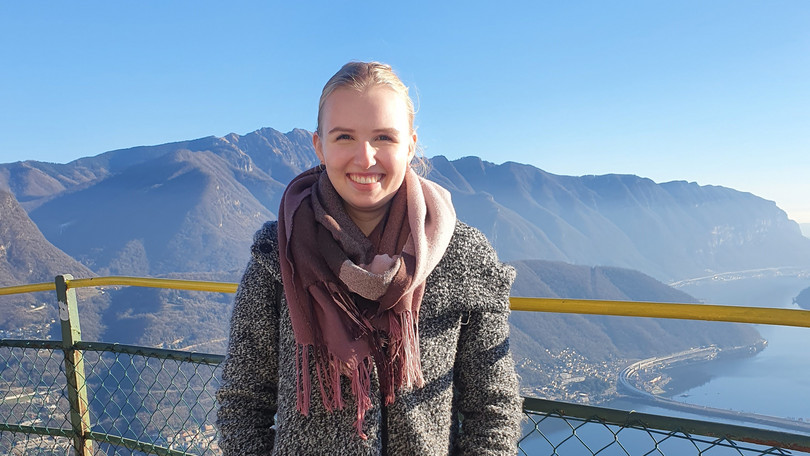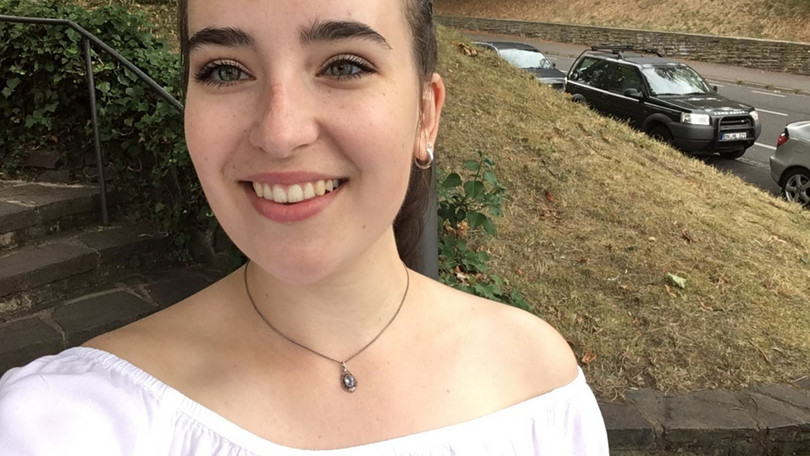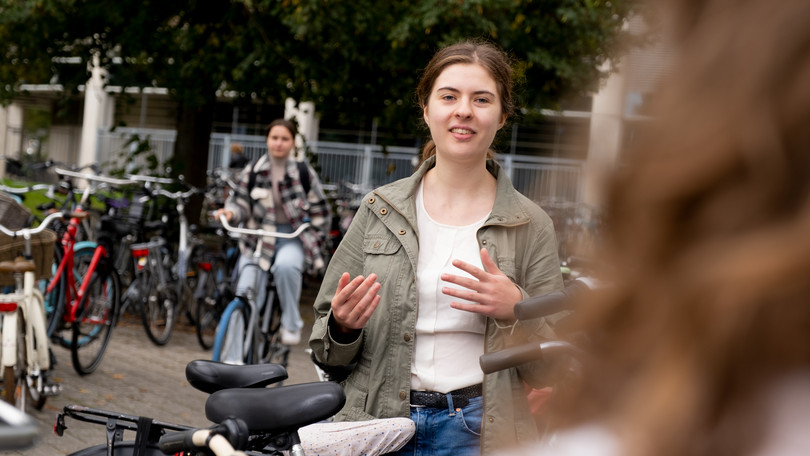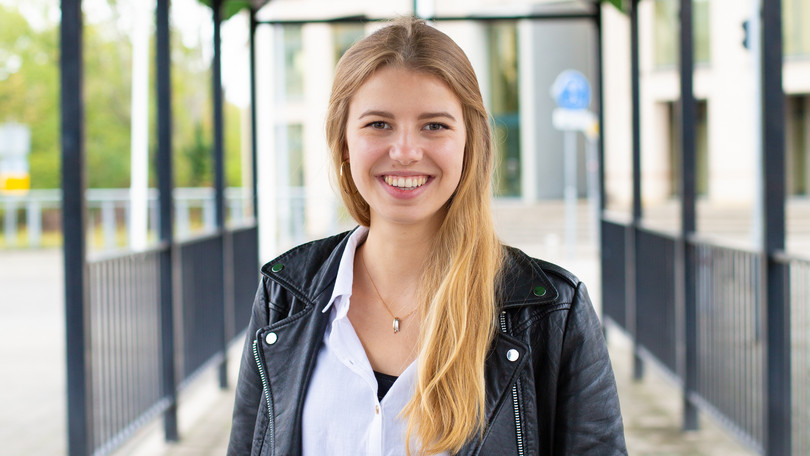Student and Alumni experiences - Work and Organizational Psychology
On this page you find experiences of current and former students about the Masters Work and Organizational Psychology at Leuphana Graduate School.
Ana's experiences
17.04.2023 Ana García López del Amo is a Spanish, 2nd year student in the International Joint Master of Research in Work and Organizational Psychology, and is currently starting her thesis research here at the Faculty of Psychology and Neuroscience at Maastricht University. After finishing her bachelor Psychology in Madrid, she went on the hunt for a master’s programme.
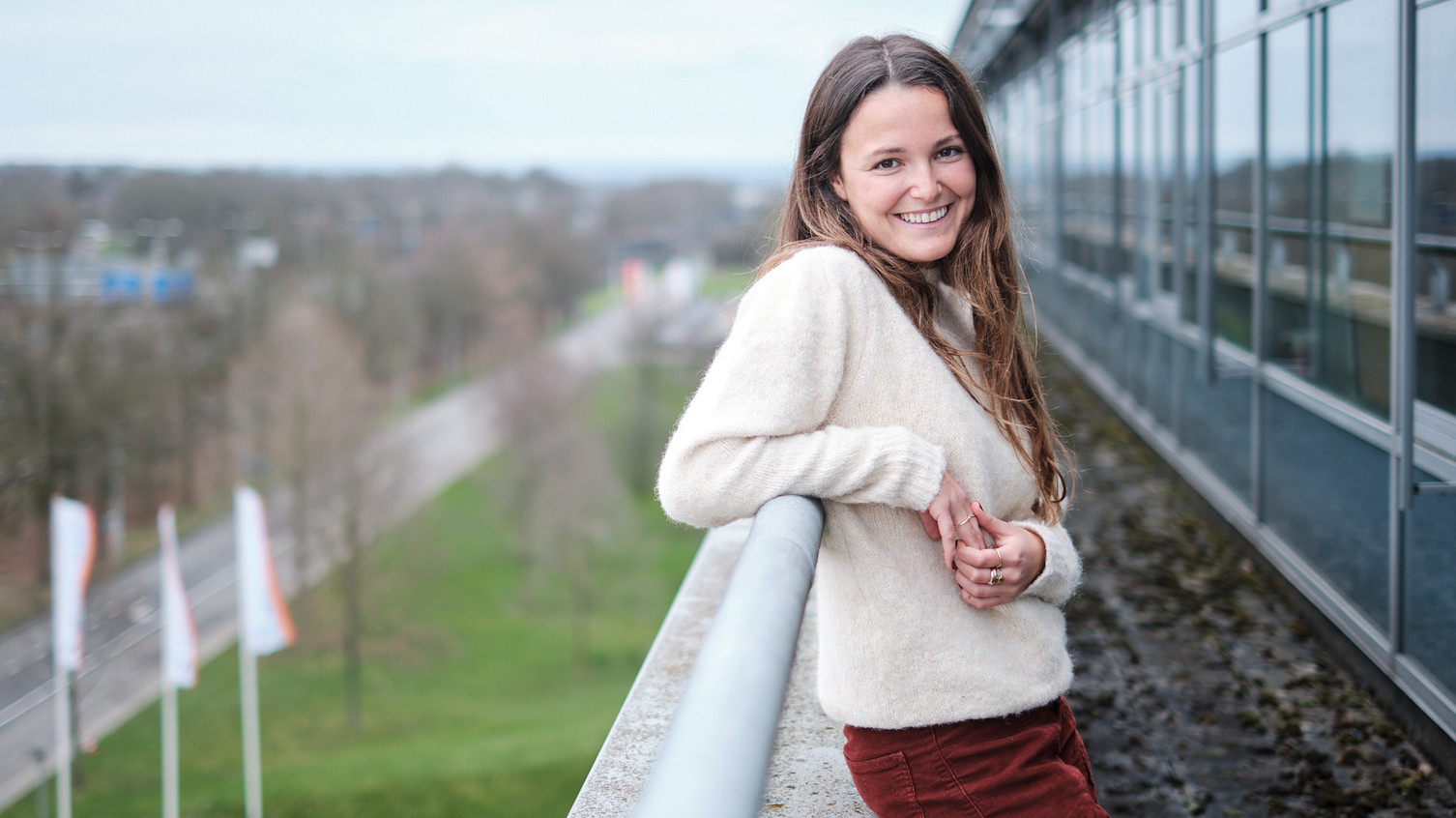 ©Thom Frijns/Maastricht University
©Thom Frijns/Maastricht University
Why did you choose the International Joint Master of Research in Work and Organizational Psychology (IJMRWOP)?
“One of the reasons why I chose this master is because I love traveling and going abroad. I already did an Erasmus exchange in Italy during my bachelor”.
After her bachelor, Ana started the process of finding the right master’s programme for her. “Work and Organizational Psychology has always caught my eye in the broad field of psychology. I then looked at: where do they have a good level of English. That’s how I started looking at the Netherlands, and my online search quickly brought me to Maastricht”.
What do you like most about Work and Organizational Psychology?
“Before starting this master it was hard for me to answer. But this joint master has given me a broad overview and knowledge of all the aspects of this field. I am very drawn to training and development. Looking at employees and identifying what they need so they can be more productive and ultimately improve their wellbeing, and then steering organizations and teams in that direction.”
What is your thesis research about?
"I am looking at the passion people have for their work. One of the theories I’m focusing on, talks about two different types of passion: harmonious passion and obsessive passion. One passion (harmonious) is more in harmony with other aspect of your life. You’re comfortable at work and you don’t feel bad when you’re not working. Obsessive passion is totally the opposite: when you’re not working, you have ruminative thoughts about work. Work is your whole identity."
Ana started looking at what variables she could introduce to look at employee health, the answer: snacking. "I want to look at how these different types of passions affect the level of snacking a person does. To do this I’m also going to study the type of work prospection a person has, which can be positive or negative, and whether this might influence that relationship (i.e., type of passion and level of snacking). My hypothesis is that people with harmonious passion towards work will snack less than people with obsessive passion because they might experience positive work prospection. On the other hand, people with obsessive passion may have higher levels of snacking because they may experience negative work prospection, i.e., anticipate work with worry and anxiety, which can lead them to experience more stress and compensate with snacking."
How do you think IJMRWOP alumni make a difference in organizations?
"Because of the focus on research, students who study this international joint master will be able to identify what organizations need to be more efficient and design and research interventions at the individual, team, and organizational levels, taking into account both internal and external aspects of the organization. The international nature of the programme also allows us to look at problems from different cultural perspectives. I think we can contribute greatly to organizations on topics such as: positive work climates and work-life-balance (among others), to increase job satisfaction, something that could consequently increase productivity."
Interview: Maastricht University
Anika's experiences
14.01.22 Anika Thurow has already completed her Masters studies in Work and Organizational Psychology. After semesters in Maastricht, Valencia and Lüneburg, she wrote her Master's thesis on Knowledge Hiding as a Counterproductive Work Behaviour. What she remembers most is the strong international component of the programme, the high proportion of research and the close relationship with the lecturers.
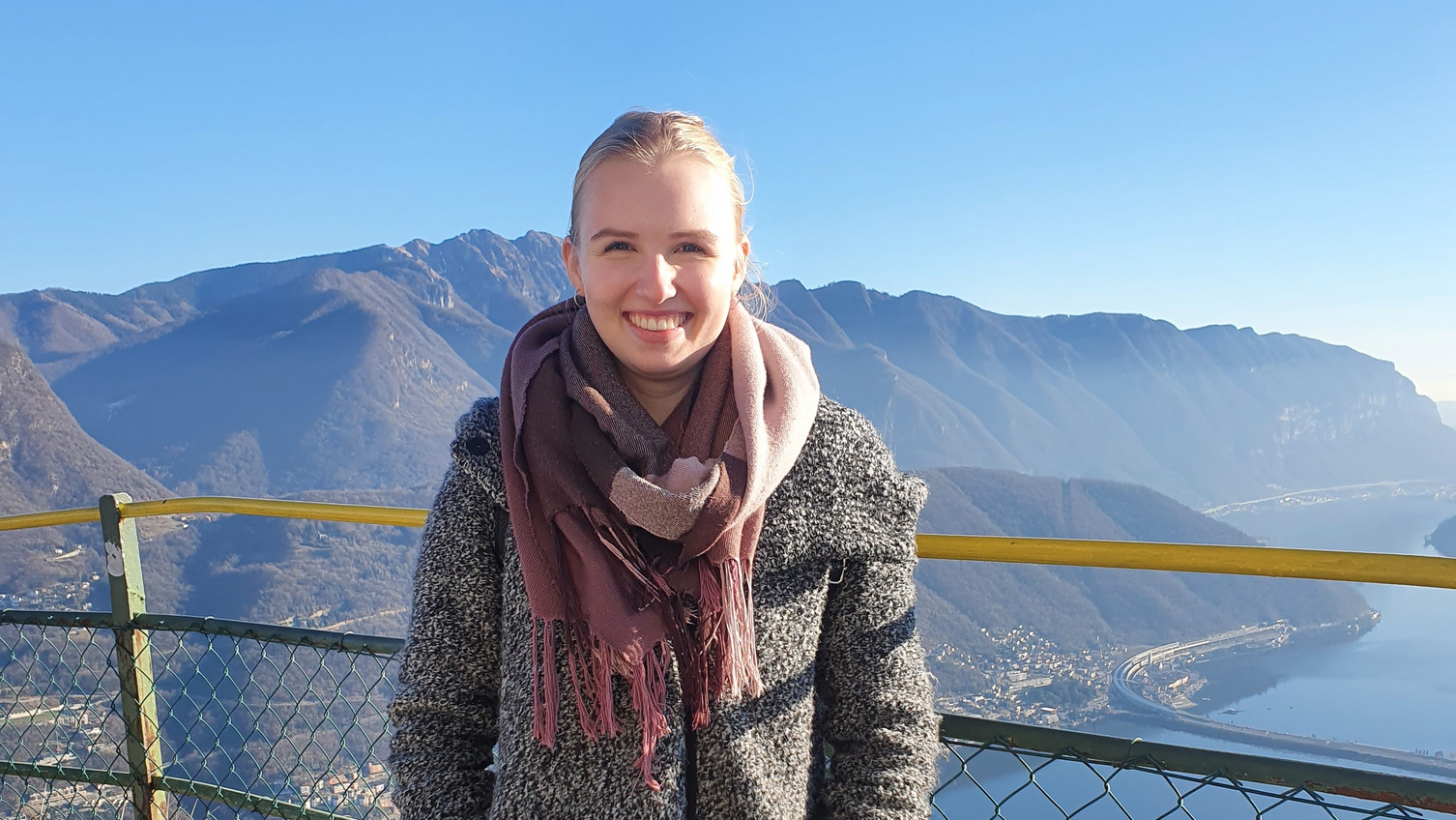 ©Privat
©Privat
Why did you decide to study Work and Organizational Psychology?
I am just as interested in research as I am in the application of scientific findings in practice. The study programme deals with both fields in detail, which is why I chose this particular Masters programme. Since the universities have different emphases here, we were given an insight into both fields. In this respect, we were able to benefit from "the best of three worlds". Another important factor for me was the international orientation of the Masters programme. I had already completed a Bachelor degree in English language and had the ambition to do the Masters degree in English language as well, especially since I wanted to preserve the opportunity to work in an international context.
What expectations did you have before you started your Masters at Leuphana and were they fulfilled?
I expected to improve my methodology at Leuphana. This expectation was fulfilled above all by courses such as Group Research Project and Critical Reading, but also Research & Design. There we learned a lot about high-quality research and research methods as well as statistics.
What did you study before you started your Masters degree and where were you able to build on your previous studies?
Before I started my Masters, I did a Bachelor in Psychology, so I was able to pick up a lot of content from it during my Masters. I acquired a pretty good basic knowledge through some research methods and statistics courses, which the Masters programme built on well. Although we also discussed analyses and concepts in statistics that I already knew from the Bachelor programme, I found it very useful and helpful to repeat these points again, internalise them and bring everyone up to the same level. The way of thinking also builds very well on the principles of critical thinking that I was taught in the Bachelor. Courses like Critical Reading in particular helped me a lot in this aspect. In terms of content, most of the topics were new to me and I was able to develop a lot and learn a lot.
How did you cope with the disciplines of the degree programme that were new to you?
Although the Masters programme followed on very well from the Bachelor programme, the new disciplines were still a challenge. However, the good basics that I was taught in the Bachelor helped me a lot to cope well with the new disciplines. In addition, we often started with the basics in more demanding subjects, such as statistics, so that everyone was on the same level and could then build on that. It helped a lot to recall the basics.
How would you rate the research component in your study programme?
In my estimation, the research portion is about 75%. The second semester in Lüneburg and the fourth semester, in which we wrote the Masters dissertation, were very much characterised by research, but there were also practical aspects interspersed in all semesters. In Maastricht in particular, we looked at many practical aspects in order to first get an overview of the literature. The practical orientation of this semester was related to the fact that we did the courses of the one-year practically oriented WOP Masters. In order to increase the research part, we had a few additional tasks in the semester that were research-oriented.
Your study programme takes place not only in Lüneburg, but also in Maastricht and Valencia. What’s special about Maastricht and Valencia? What did you particularly like about Lüneburg and Leuphana?
What made Maastricht special was the PBL system. It consisted of finding answers to specific problem statements on various topics through different articles. Each week we dealt with a different topic and were thus able to dive deep into the labour and organizational literature. We got a good overview of the literature there. In Valencia we focused on interventions and learned a lot about intervention design and intervention research. We analysed interventions and also designed our own interventions, which was a completely new field for me. The semester at Leuphana was characterised by the strong focus on methods and statistics. I especially liked the high level of personal responsibility that the students were given. We had large projects in almost every subject that we worked on throughout the semester. The projects were mostly research proposals, but we also conducted our own study as a team. Despite the personal responsibility, we definitely had enough guidance and support from the lecturers. In my perception, the professors found a good balance between support, guidance and freedom.
What is the relationship with the other students and the lecturers like?
Because there were so few of us, I felt that we had a close relationship with the lecturers. Especially in contrast to the anonymity I experienced my Bachelor, I found the personal relationship with the lecturers very valuable. Everyone was always very eager, helpful and listened to us and took our feedback very seriously. There was respect on the part of both the students and the lecturers, and I still feel that I can approach the lecturers at all three universities if I have a question. The personal relationship with the lecturers is also one of the most positive points for me about the Masters programme. We also had a good relationship among the students. We always helped each other, because the number of tasks was not insignificant.
What did you write your Masters dissertation about and how did you come up with the topic?
I wrote my Masters dissertation on Counterproductive Work Behaviors, more specifically on Knowledge Hiding. Laura Venz, the supervisor of my Masters dissertation, had sent me a few articles that served as inspiration for choosing a topic. One of them was a paper on Knowledge Hiding, which I found very interesting. I then read further into the topic and found more and more aspects that I found interesting. At some point I had compiled a whole list of interesting variables and potential research questions, which I then broke down together with Laura. After each meeting, new aspects or perspectives came up that I researched and at the end of the process of reading and discussing, there was my final research question.
What are your plans now that you have completed your Masters degree?
I am currently doing an internship in a science-related consultancy. The internship ends at the end of March and currently I am not completely sure what I will do then. At the moment I'm thinking of doing a PhD or looking for another internship or a job in consulting.
To whom would you recommend this degree programme?
I would definitely recommend the programme to anyone who wants to do a PhD or pursue an academic career. You will be very well prepared for this! But even if you are not sure about your professional future yet, the degree programme offers a lot. I can continue to apply a lot of the content in my current internship. In my opinion, it is important to have a desire to think and work scientifically and to think critically about research. Even if you are aiming for a practical career, but are interested in better understanding research and thus also results, the degree programme is a good choice.
Interviewer: Jonas Kernein
Lisa's experiences
20.04.21 The 21-year-old studies the European Programme “International Joint Master of Research in Work and Organizational Psychology”. Despite the Corona pandemic she stays optimistic about her course of studies, also because the digital semester start at Leuphana went smoothly.
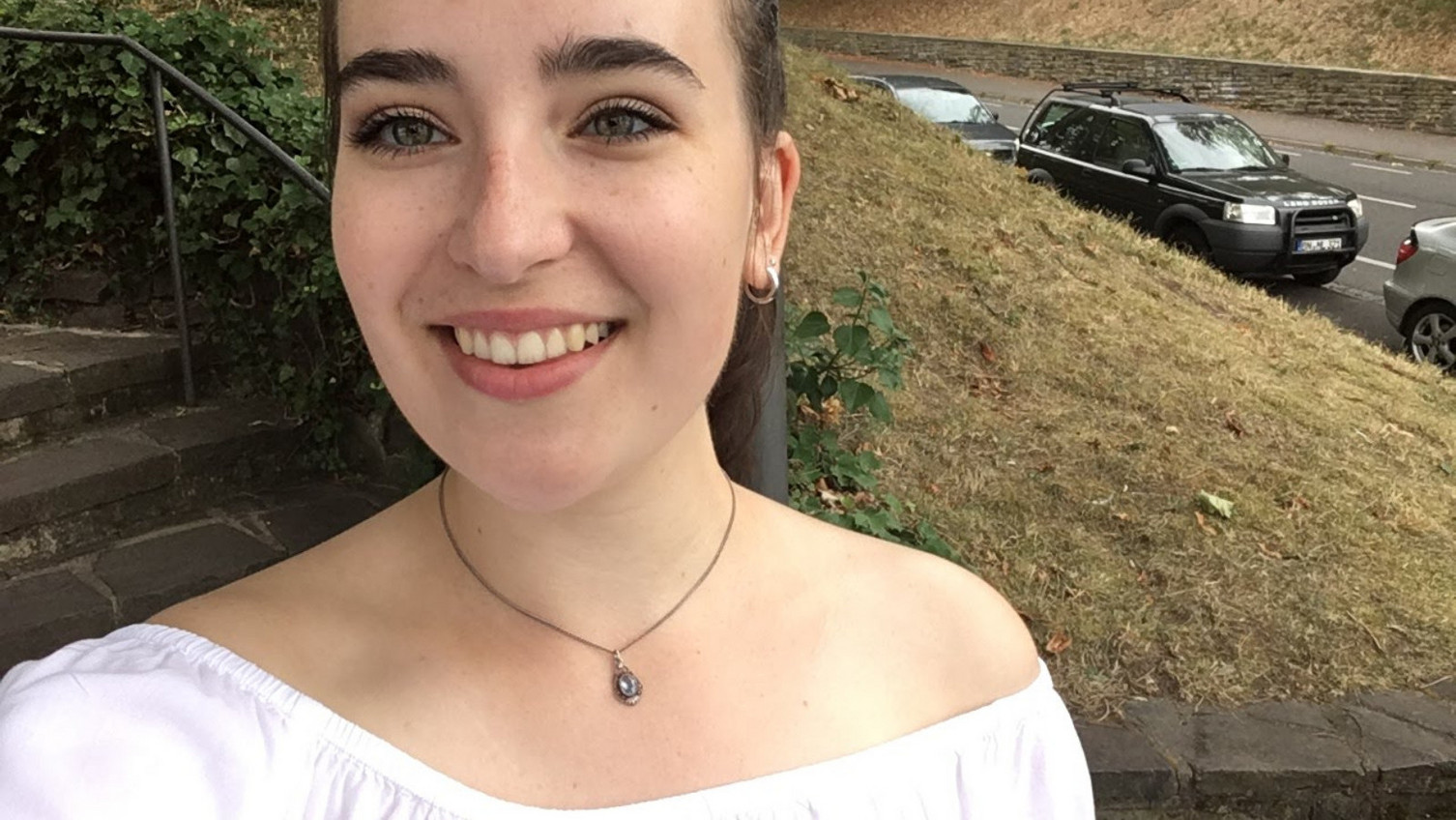 ©Privat
©Privat
Lisa Boenke is not a spokesperson. She prefers listening, observes and tries to understand humans. The influence of different cultures on personality development is especially interesting to her. “That´s why it was clear to me long before I finished school that I would like to study abroad”, says the 21-year-old. Lisa Boenke comes from North Rhine-Westphalia, the Netherlands was a logical choice - especially because of the opportunity there to study in English. The Rhinelander completed her psychology degree at the University of Twente. “The studies were very interdisciplinary. We learned programming, for example, or dealt with the philosophy of science”, recalls Lisa Boenke.
Her Masters should meet similar requirements. The graduate began her search – and came across the study programme “International Joint Master of Research in Work and Organizational Psychology”. It is studied at three European universities: Leuphana in Lüneburg, Maastricht University and Universitat de València and concludes with a joint degree. Lisa Boenke just finished her first semester in the Netherlands: “For me, this programme is a fantastic opportunity to study different cultures, but also to prepare myself specifically for an academic career. Psychology as an independent field of research is comparatively young and only emerged around 1870. Therefore, there are still many unanswered questions”, says Lisa Boenke. She feels well-prepared for a doctorate through her studies: "We have a lot of courses in statistics and methods. That is a big plus.” She also experiences the international exchange as enriching: “Although Germany and the Netherlands border each other, their mentalities are very different. In the Netherlands, everything is very egalitarian; professors, for example, are called by their first name”, she reports.
“That worked out really well!”
In the meantime Lisa Boenke is back again in Germany and is now studying at Leuphana. She was particularly positively surprised by the start of the semester, which went smoothly despite the Corona pandemic: “It worked out really well! Due to the small group size in our study programme, the online seminars via video conferences also easily implemented.” At the beginning of the semester, the students dealt with the topic of negotiations. “Leuphana is the only one of the three universities that offers negotiation as a subject. That's why I would like to write my Masters thesis here. The content convinces me”, says the student.
Lisa Boenke has been interested in industrial and organizational psychology for a long time already: “This subject is very formative and has concrete benefits for the whole of society.” At the moment, for example, she is working on the topic of the home office and its impact on social relationships: “How do people create boundaries between work and home? In today's situation, work can quickly take over and annoy partners, because they feel that they aren´t getting enough attention”, explains the Masters student.
In the winter semester, she plans to continue her studies in Spain: “After Maastricht and Lüneburg, Valencia is the third stop. I would be very sad if it cannot take place as planned due to the pandemic, but I am also open to other solutions. So far everything is running very smoothly at the university despite Corona.” But later, when she has finished her Masters degree, Lisa Boenke would very much like to do research and work in different countries.
Author: Dr. Marietta Hülsmann
Annika's experiences
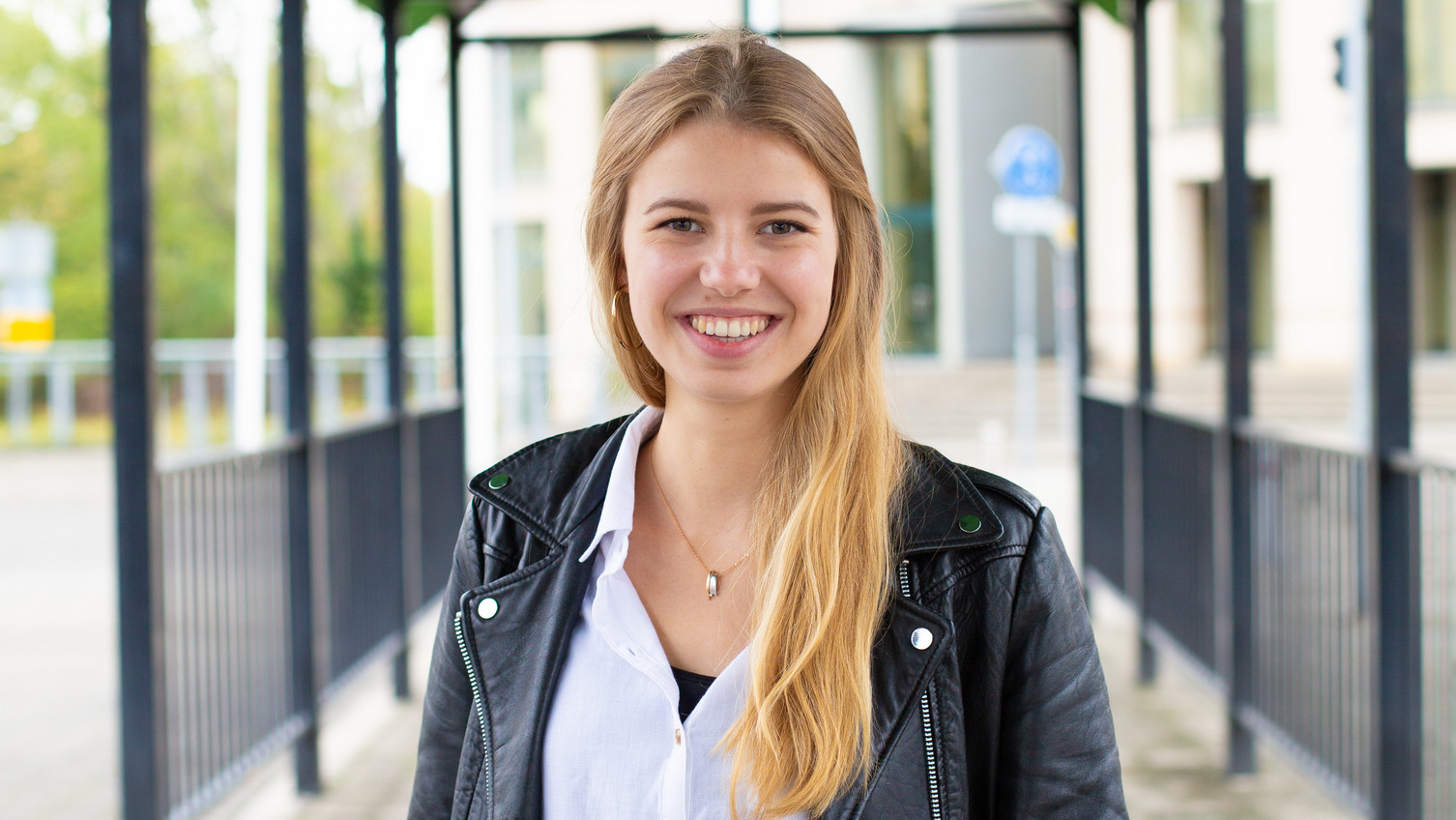 ©Universität Maastricht
©Universität Maastricht
Why Annika chose the International Joint Master of Research in Work and Organizational Psychology
Studying at Maastricht University (UM) is a personalised, life enriching experience that prepares you for the future, both professionally and personally. Our bachelor’s and master’s programmes are designed for students who have an intrinsic curiosity in human behaviour and health. Students ‘who want to go the extra mile’ on a professional and/or personal level. What’s your extra mile?
Annika, 21, is from Germany and decided to stay in Maastricht for the 2-year International Joint Master of Research in Work and Organizational Psychology. “I have a bachelor’s degree in Psychology, the English-taught programme, from Maastricht University. I developed an interest in stress management and work-life balance and went to the Open Days to find out about suitable master’s programmes.”
Annika’s extra mile in health: “I want to contribute to a healthy work-life balance by translating research into helpful interventions”
“As soon as I saw this programme I fell for it. It’s very broad and very small-scale. Each semester takes you to a different university in a different country and I think it’s a great opportunity to combine travel with studying abroad. For me as a person it also forces me to develop more flexibility, which is a soft skill that I need to improve in.
This first semester I spend in Maastricht, focusing on research. The second at Lüneburg University in Germany, focusing on entrepreneurship. In my second year I will first go to Spain, to Valencia where we will focus on interventions. During the last semester you will do a research project somewhere, depending on the topic.
This programme is very international and you benefit from all those different settings and the backgrounds of your fellow students. Problem-Based Learning is one of the reasons I wanted to study in Maastricht. You learn together, in an interactive and pleasant atmosphere. I’m interested in translating research into practice. As people are ageing, work-life balance becomes increasingly important. I want to contribute to that by developing helpful interventions.”
Interview: Maastricht University
Graduates' experiences
You can find statements from graduates of the programme on the website of Maastricht University.
Contact and Counselling
First contact point
The Information Office (Infoportal) is your contact point for
- general information on the application procedure
- initial questions about the study programmes offered at Leuphana
- making an appointment with the Graduate School Student Counselling Service.
Information Office
Building 8, Ground Level
Fon +49.4131.677-2277
studierendenservice@leuphana.de
Campus opening hours
Mon - Thu 9.00 am - 4:00 pm
Fr 9.00 am - 12 noon
Student Counselling
To make an appointment with our Student Counselling Service, please use our booking tool on our website.


